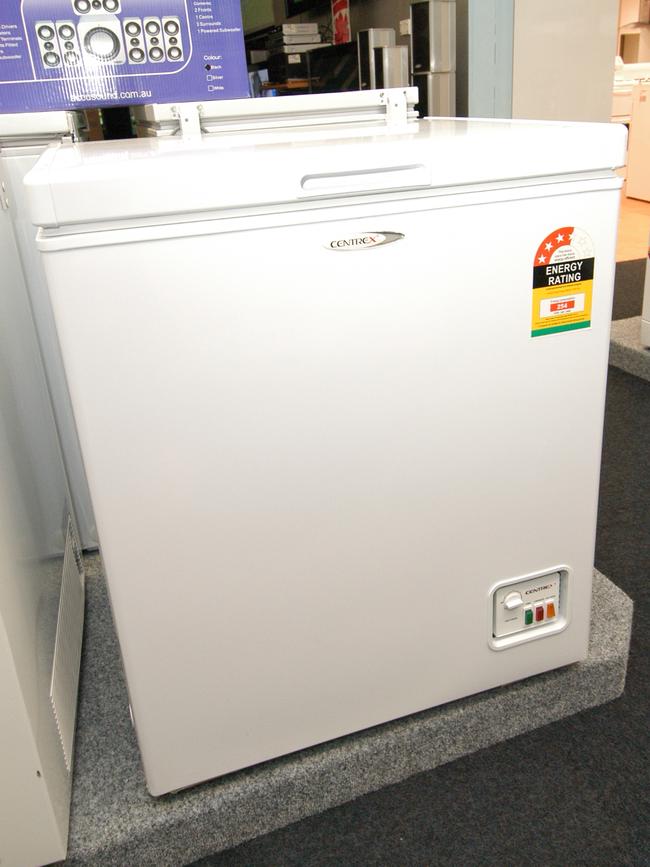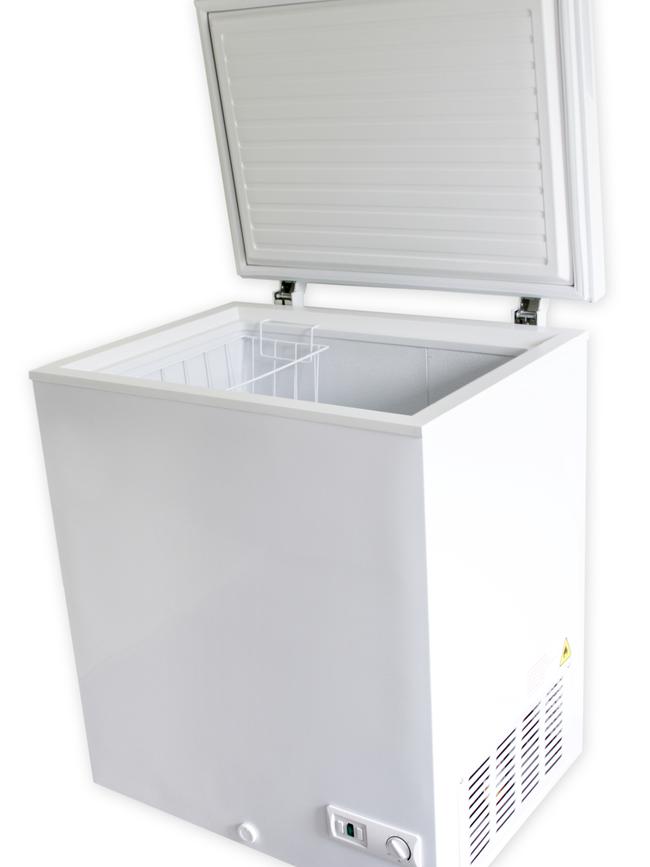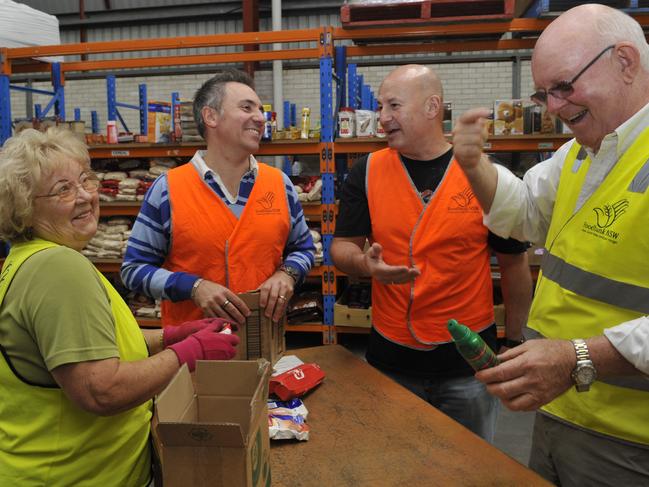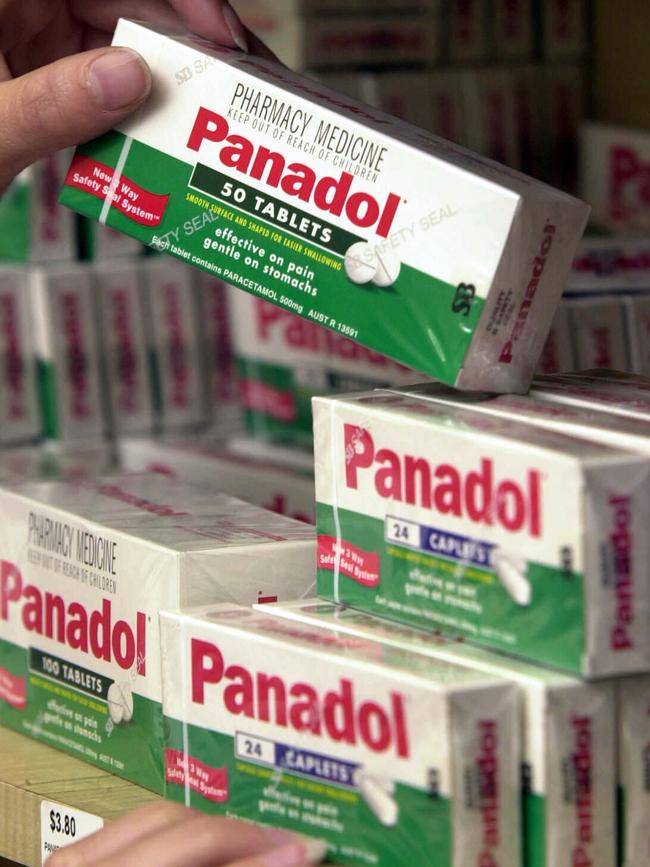Coronavirus preparation: Shoppers frenzy-buy freezers amid panic buy for isolation
Panic buyers are going the extra mile at preparing for a 14-day quarantine with chest freezer sales going through the roof. These are the big-ticket items every Australian needs to stock up on.
Illness
Don't miss out on the headlines from Illness. Followed categories will be added to My News.
Forget about toilet rolls, now it is about the trusty chest-top freezer.
The demand for these whitegoods has soared in popularity as fears of a widespread coronavirus outbreak grow, seeing Australians rush to buy them.
Retail magnate Gerry Harvey said demand for the cooling devices had heated up and surpassed consumers’ rush to stock up on giant packs of toilet rolls.
“I’ll be damned. It’s a bit like the toilet paper story,” he said.


“Chest-type freezers are not big freezers but a lot of people have them in addition to a freezer in their fridge.
“They are very common and always have been but when you get a rush on them you think, ‘that’s strange’.”
Depending on the size, chest-top freezers start in price from as low as $229.
Mr Harvey said he could not understand the mayhem caused around Australians rushing to stock up on two and three ply rolls but could see why shoppers required freezers.

“People must be stocking up on meat, cattle and sheep prices are going through the roof,” he said.
“So if you are storing meat this isn’t silly.”
It is also understood giant whitegoods chain The Good Guys had also seen a similar trend for these whitegoods.
Restrictions on toilet rolls remain in force in supermarkets – Woolworths has a two pack per transaction limit while rival Coles has a one pack per limit enforced.
WHY YOU SHOULD PREP AND WHAT YOU SHOULD GET
Australia’s largest food relief organisation is stocking up on pantry goods in anticipation of more families needing assistance with food ahead of the coronavirus pandemic.
Foodbank Chief Operating Officer John Robertson told News Corp it was in the early stages of increasing stock to cater to those affected by coronavirus if businesses were to close down and wages cut.
“What we expect is if things escalate to the point where businesses close and people aren’t being paid, people will be look for support from charities for food,” Mr Robertson said.
“We’re preparing should that occur.”

A virologist at the forefront of coronavirus research told News Corp a pandemic was inevitable and an outbreak in Australia was likely to result in the temporary closure of schools, workplaces and the cancellation of large gatherings, including sporting events.
It comes as Google Australia has revealed some of the top trending questions people are typing into the search engine is: “What to stockpile in a pandemic?” and “What food to stockpile for pandemic?”
Coronavirus has already infected 113,605 globally and killed 4012 people.
“What happens if your schools get closed and you’re stuck at home with your kids for a while or if people say ‘you can’t go to work’, ‘we need to keep people at home for a while to slow down the spread of the virus’,” University of Queensland Associate Professor Ian Mackay said.
“Now is the time to buy a few extra things.”
Coronavirus just caused the American Physical Society to cancel its biggest meeting of the year #COVID19https://t.co/e4iAsBZj2q
— ɪᴀɴ á´ á´á´€á´„á´‹á´€Ê, ᴘʜᴅ 🦠🤧🧬🥼🦟 (@MackayIM) March 3, 2020
Mr Robertson said the best long-life food for Australian pantries included canned goods – soup, fruits, vegetables, pet food, coffee and instant baby formula – and grains including pasta, breakfast cereal, rice, oats and international bread, such as wraps, tortillas, pizza bases and Indian naan.
COVID19 may cause food shortages in your area, so some tips for you and your family to keep stocked on food:
— Health Nerd (@GidMK) March 2, 2020
- buy nonperishables
- small amounts early
- eat the rich
- nuts are great and last forever!#coronavirus #CoronavirusOutbreak
Other big-ticket items included UHT milk, packet noodles, pasta sauce, nuts, tofu, dried fruits, eggs, tea and flour.
“A lot of our charities prepare meals so flour is a great foundation to have for preparing meals,” Mr Robertson said.
“Some of them will do simple things like scones or pancakes.”
Toilet paper is another necessity Australians cannot live without as well as laundry detergent and toiletries including soap, shampoo, rubbish bags, tissues and feminine hygiene products.
Nappies and wipes are also essential for those who have children as well as ensuring there are batteries in the house, along with matches, candles, a torch, portable radio and water sterilising tablets. An up-to-date first aid kit is vital for Australian households as well.
Foodbank, which collects and distributes food to hunger-relief charities, echoed Prof Mackay’s comment on the coronavirus being an imminent pandemic in Australia.
Mr Robertson said it would add pressure to the not-for-profit organisation, which already runs about 35 per cent behind demand.
He said Foodbank planned to fill the gap as well as prepare for an expected annual growth of up to eight per cent of Australians in need.
General practitioner and Australian Medical Association NSW president Dr Kean-Feng Lim urged Australians to also stock up on paracetamol, ibuprofen, panadol or aspirin to alleviate sickness or pain.
“A lot of prevention comes down to staying healthy,” Dr Lim said.


“Making sure you get a good night’s sleep, making sure you’ve got an adequate diet with preferably five serves of vegetables and two serves of fruit a day, and if you can aim for three different colours you will cover a lot of vitamins and antioxidants your body needs.”
Dr Lim said it was also important for Australians to stay hydrated, steer clear of others if they are feeling sick, wash their hands, and cough or sneeze into the crook of their elbow.
He said a visit to the GP was essential if they were feeling ill, and the signs of coronavirus included a severe shortness of breath, high fevers and generalised aching.
“Those most likely to get illnesses are those who are elderly and those with pre-existing conditions, like heart and lung problems,” Dr Lim said.
“There are no medications to make a difference in terms of making the virus go away any faster … so it’s important to stay healthy and hydrated.
“About five per cent of people get quite severe respiratory illness so we need to take this very seriously.
“It means a very severe shortness of breath, pneumonia and sometimes secondary infections, which can lead to hospitalisation and death.”
Originally published as Coronavirus preparation: Shoppers frenzy-buy freezers amid panic buy for isolation


